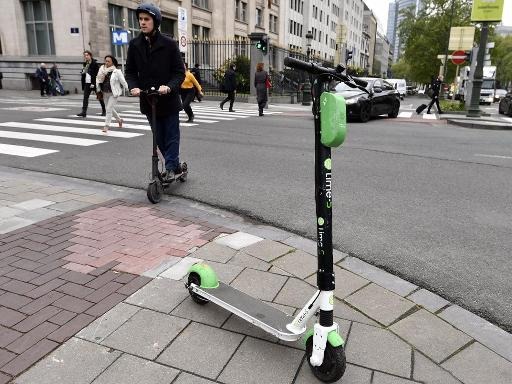The world market in self-service electric scooters could reach 40 to 50 billion US dollars in 2025, 12 to 15 billion of which would be in Europe, according to a study carried out by the Boston Consulting Group (BCG) published on Friday. Calculating the potential market from the relevant population, the average number of journeys per user and the average price, the BCG estimated it would increase by 12 to 15 billion dollars in the United States by 2025, as in Europe, 6 to 8 billion in China and 10 to 12 billion in the rest of the world.
Over this period, electric scooters were predicted to take about 15% of the global market in motorized mobility on demand, a market to whose growth they contributed by widening it to include short journeys, according to the consultancy firm.
Around 35% of journeys were less than 2 kilometres and 75% less than 10 km, the BCG, for whom electric scooters were relevant in terms of distances of between 0.5 and 4 km, observed.
"However, in spite of all the advantages offered by self-service scooters, their mass adoption is not established," the BCG considered. In terms of challenges, the firm cited a lack of demand in towns with under 100,000 inhabitants, frequent users' interest in buying their own machine, and problems caused by the scooters' appearance in urban areas (notably in terms of safety and the cluttering-up of pavements).
Self-service scooters were just not profitable at the moment: they lasted only three months on average - above all because of intensive use and vandalism - at a time when they needed to be in use for at least six months in order to make a profit. However, more robust models should last up to ten months.
Consolidation was inevitable among the large number of start-ups that have been launched in this market. Those who could "anticipate as well as mitigate potential conflicts and seek partnerships with towns and other mobility platforms will do well," the BCG considered.
Similarly, "towns that can anticipate the public's needs and concerns through trials, a learning process and prudent regulation will be winners, if only because it will be more fun to visit their centres," the study's authors felt.
The Brussels Times
E-scooter market could be worth 40 to 50 billion USD by 2025

